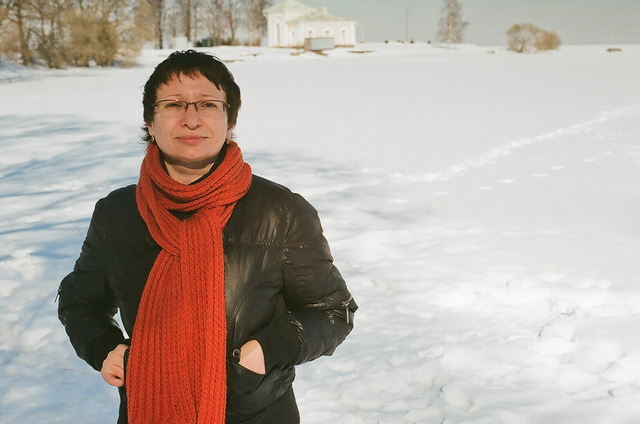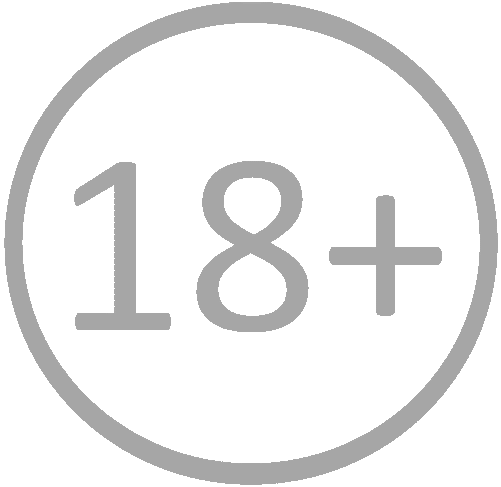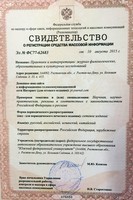
РЕТРОСПЕКЦИЯ И АРХЕТИПИЧЕСКИЙ СЮЖЕТ ТЕЛЕМАХИДЫ В ПОЭТИКЕ ТОМАСА БЕРНХАРДА
Аннотация
В статье исследуется ретроспекция как тип движения художественного времени, функции которого – преодоление необратимости материального времени (1), символизация возвращения в прошлое (2), идеализирующая консервация личного и / или коллективного прошлого (3), блокировка развития (4), значимое противопоставление прожитого и еще не пережитого экзистенциального времени (5). На материале ранней поэзии и отдельных прозаических произведений анализируются смыслы и формы ретроспекции в поэтике австрийского писателя Томаса Бернхарда (1931–1989). Ретроспективное движение анализируется как физическое и воображаемое перемещение в пространстве и времени героя, как мотив воскрешения прошлого (в том числе «утраченного рая» культуры), а также, в частности, воскресение / поиски мертвого отца (телемахида). В статье используются компаративный, биографический, мифопоэтический методы. В итоге выявляется, что ретроспекция у Бернхарда представляет собой не просто один из приемов реконструкции прошлого, но является «конструктивным приемом» (Ю. Тынянов). На формальном уровне ретроспекция выражена в приеме повтора: сюжетного (возвращение в пространство и время прошлого), стилистического (повтор лексем, грамматических конструкций, синтаксический параллелизм), ритмического. Сюжет поиска отца, в свою очередь, открывает и замыкает творчество Бернхарда: последний его роман (“Auslöschung. Ein Zerfall”, 1986) возвращается к темам лирики, к исследованию собственного Herkunftskomplex, к испытанию религиозной и семейной идеи.
Ключевые слова: Томас Бернхард, семантика движения, ретроспекция, художественное время, австрийская литература, модернизм, архетип отца.
DOI 10.18522/2415-8852-2019-4-43-68
Полный текст:
PDFЛитература
Бернхард, Т. (2006). Всё во мне…: Автобиография / пер. с нем. СПб.: Изд-во Ивана Лимбаха.
Гардинер, Дж.Э. Музыка в Небесном Граде: Портрет Себастьяна Иоганна Баха / пер. с англ. Р. Насонова, А. Андрушкевич. М.: Rosebud Publishing, 2019.
Гульд, Г. Итак, писать ты хочешь фугу? // Гульд Г. Избранное: в 2 кн. Кн. 1 / Сост. Т. Пейдж, пер. с англ. В. Бронгулева, А. Хитрука. М.: Классика-ХХI, 2006. С. 231–236.
Котелевская, В.В. Дом Витгенштейна – Бернхарда: хождение туда и обратно // Логос. 2017. Т. 27. № 6. С. 257–287.
Котелевская, В.В. Изобретение языка: деконструкция и реконструкция красноречия в поэтике Бернхарда и Беккета // Русская германистика: Ежегодник Российского союза германистов. Т. 13. М.: Издательский дом ЯСК, 2016. С. 114–121.
Котелевская, В.В. Повествование как искусство фуги: музыкально-литературный трансфер в прозе Томаса Бернхарда // Русская германистика. Тексты докладов XVI конференции Российского союза германистов. Ежегодник Российского союза германистов. М.: Издательство РГГУ, 2019. С. 133–145.
Котелевская, В.В. Томас Бернхард и модернистский метароман. Ростов-на-Дону; Таганрог: Издательство Южного федерального университета, 2018.
Мандельштам, О.Э. Избранное. М.: СП Интерпринт, 1991.
Мелетинский, Е.М. Поэтика мифа. М.: Мир; Академический проект, 2012.
Молчанов, В.И. Феномен пространства и происхождение времени. М.: Академический проект, 2015.
Паткуль, А.Б. Рецензия на книгу: Молчанов В.И. Феномен пространства и происхождение времени. М.: Академический проект, 2015 // HORIZON. Феноменологические исследования. 2017. Т. 6. № 2. С. 390–410.
Поселягин, Н.В. О понятии «вторичные моделирующие системы»: из истории раннего российского структурализма // Вестник РУДН. Сер. Теория языка. Семиотика. Семантика. 2010. № 1. С. 13–20.
Фарино, Е. Введение в литературоведение: Учебное пособие. СПб.: Издательство РГПУ им. А.И. Герцена, 2004.
Bernhard, Th. (2009). Die Autobiographie. Die Ursache. Der Keller. Der Atem. Die Kälte. Ein Kind [The autobiography. The cause. The cellar. Breath. The cold. A child]. St. Pölten – Salzburg: Residenz.
Bernhard, Th. (2006). Eine Begegnung: Gespräche mit Krista Fleischmann [An encounter: talks with Krista Fleischmann]. Frankfurt a. M.: Suhrkamp Taschenbuch.
Bernhard, Th. (2003). Werke in 22 Bänden. Bd. 14. Erzählungen, Kurzprosa [Works. In 22 volumes. Vol. 14. Narratives, short stories]. Frankfurt a. M.: Suhrkamp.
Bernhard, Th. (2015). Werke in 22 Bänden. Bd. 21. Gedichte [Works. In 22 volumes. Vol. 21. Poems]. Frankfurt a. M.: Suhrkamp.
Bernhard, Th. (2006). Werke. In 22 Bänden. Bd. 12. Ungenach. Watten. Gehen [Works. In 22 volumes. Vol. 12. Ungenach. Watten. Walking]. Frankfurt a. M.: Suhrkamp.
Bernhard, Th. (2003). Werke. In 22 Bänden. Bd. 2. Verstörung [Works. In 22 volumes. Vol. 2. Disturbance]. Frankfurt a. M.: Suhrkamp.
Bloemsaat-Voerknecht, L. (2006). Thomas Bernhard und die Musik [Thomas Bernhard and music]. Würzburg: Königshausen & Neumann.
Bozzi, P. (1999). “Das Wort des Todes”. Thomas Bernhard und Charles Péguy [“The Word of death”. Thomas Bernhard and Charles Péguy]. In J. Hoell, & K. Luehrs-Kaiser (Eds.), Thomas Bernhard: Traditionen und Trabanten [Thomas Bernhard: traditions and satellites]. Würzburg: Königshausen & Neumann, 151– 158.
Byron, M. (2013). Scharfsinnige Sturzfluten bei Beckett und Bernhard [Ingenious flash floods at Beckett and Bernhard]. In J. Wilm, & M. Nixon (Eds.), Samuel Beckett und die deutsche Literatur [Samuel Beckett and German literature]. Berlin: transcript, 139–156.
Diederichs, B. (1998). Musik als Generationsprinzip von Literatur. Eine Analyse am Beispiel von Thomas Bernhards Untergeher [An analysis using the example of Thomas Bernhard’s The Looser] (Doctoral Dissertation, Gießen).
Esslin, M. (1985). Beckett and Bernhard: a comparison. Modern Austrian Literature, 18(2), 67–78.
Eyckeler, F. (1995). Reflexionspoesie: Sprachskepsis, Rhetorik und Poetik in der Prosa Thomas Bernhards [Reflection poetry: skepticism of language, rhetoric and poetics in Thomas Bernhard’s prose]. Berlin: Erich Schmidt.
Frege, G. (1892). Über Sinn und Bedeutung [About meaning and reference]. Zeitschrift für Philosophie und philosophische Kritik [Journal of Philosophy and Philosophical Criticism], 100/1, 25–50.
Gellhaus, A., Moser, Ch., & Schneider Helmut, J. (Eds.). (2007). Kopflandschafte – Landschftsgänge. Kulturgeschichte und Poetik des Spaziergangs [Headlandscapes – landscapes. Cultural history and poetics of the walking]. Köln; Weimar: Böhlau.
Gillmayr-Bucher, S. (2002). Die Psalmen im Spiegel der Lyrik Thomas Bernhards [The psalms in the mirror of Thomas Bernhard’s poetry]. Stuttgart: katholisches Bibelwerk.
Huber, M., & Mittermayer, M. (Eds.). (2018). Bernhard-Handbuch: Leben – Werk – Wirkung [Bernhard Handbook: life – work – influence]. Stuttgart: Metzler.
Huntemann, W. (1991). “Treue zum Scheitern”. Bernhard, Beckett und die Postmoderne [“Faithful to fail”. Bernhard, Beckett and the postmodern]. Thomas Bernhard. Text + Kritik. (Vol. 43, 3th ed.), 42–74.
Jahraus, O. (1991). Die Wiederholung als werkkonstitutives Prinzip im Œvre Thomas Bernhards [The repetition as a constitutive principle in the Œvre Thomas Bernhards]. Frankfurt a. M.: Peter Lang.
Janner, M. (2003). Der Tod im Text: Thomas Bernhards Grabschriften. Dargestellt anhand von frühen Erzählversuchen aus dem Nachlaβ, der Lyrik und der späten Prosa [Death in the text: Thomas Bernhard’s grave inscriptions. Presented on the basis of early attempts to sketches from the estate, poetry and late prose]. Frankfurt a. M.: Peter Lang.
Knape, J., Kramer, O. (2011). Rhetorik und Sprachkunst bei Bernhard [Bernhard’s rhetoric and language art]. Würzburg: Königshausen & Neumann.
Laemmle, P. (1974). Stimmt die partielle Wahrheit noch? [Is the partial truth still correct?]. Text + Kritik, 43, 47.
Linzer, M. & Ullrich, P. (Eds). (1993). Regie: Heiner Müller: Material zu Der Lohndrücker (1988), Hamlet / Maschine (1990), Mauser (1990) am Deutschen Theater Berlin [Direction: Heiner Müller: material for the scab (1988), Hamlet / Machine (1990), Mauser (1990) at the Deutsches Theater Berlin]. Berlin: Zentrum für Theaterdokumentation und -information.
Weigel, H. (Ed.). (1956). Stimmen der Gegenwart [Voices of the present]. Wien, München: Herder-Verlag, 158–179.
Weymann, U. (2007). Intermediale Grenzgänge. Das Gespräch der drei Gehenden von Peter Weiss, Gehen von Thomas Bernhard und Die Lehre der Sainte-Victoire von Peter Handke [Intermediate Border Crossings. The conversation of the three goers by Peter Weiss, going by Thomas Bernhard and the doctrine of Sainte-Victoire by Peter Handke]. Heidelberg: Universitätsverlag.
References
Bernhard, Th. (2009). Die Autobiographie. Die Ursache. Der Keller. Der Atem. Die Kälte. Ein Kind [The autobiography. The cause. The cellar. Breath. The cold. A child]. St. Pölten – Salzburg: Residenz.
Bernhard, Th. (2006). Eine Begegnung: Gespräche mit Krista Fleischmann [An encounter: talks with Krista Fleischmann]. Frankfurt a. M.: Suhrkamp Taschenbuch.
Bernhard, T. (2006). Vsyo vo mne…: Avtobiografiya [All in me… Autobiographie] (Trans.). St. Petersburg: Ivan Limbah Publishing.
Bernhard, Th. (2003). Werke in 22 Bänden. Bd. 14. Erzählungen, Kurzprosa [Works. In 22 volumes. Vol. 14. Narratives, short stories]. Frankfurt a. M.: Suhrkamp.
Bernhard, Th. (2015). Werke in 22 Bänden. Bd. 21. Gedichte [Works. In 22 volumes. Vol. 21. Poems]. Frankfurt a. M.: Suhrkamp.
Bernhard, Th. (2006). Werke. In 22 Bänden. Bd. 12. Ungenach. Watten. Gehen [Works. In 22 volumes. Vol. 12. Ungenach. Watten. Walking]. Frankfurt a. M.: Suhrkamp.
Bernhard, Th. (2003). Werke. In 22 Bänden. Bd. 2. Verstörung [Works. In 22 volumes. Vol. 2. Disturbance]. Frankfurt a. M.: Suhrkamp.
Bloemsaat-Voerknecht, L. (2006). Thomas Bernhard und die Musik [Thomas Bernhard and music]. Würzburg: Königshausen & Neumann.
Bozzi, P. (1999). “Das Wort des Todes”. Thomas Bernhard und Charles Péguy [“The Word of death”. Thomas Bernhard and Charles Péguy]. In J. Hoell, & K. Luehrs-Kaiser (Eds.), Thomas Bernhard: Traditionen und Trabanten [Thomas Bernhard: traditions and satellites]. Würzburg: Königshausen & Neumann, 151–158.
Byron, M. (2013). Scharfsinnige Sturzfluten bei Beckett und Bernhard [Ingenious flash floods at Beckett and Bernhard]. In J. Wilm, & M. Nixon (Eds.), Samuel Beckett und die deutsche Literatur [Samuel Beckett and German literature]. Berlin: transcript, 139–156.
Diederichs, B. (1998). Musik als Generationsprinzip von Literatur. Eine Analyse am Beispiel von Thomas Bernhards Untergeher [An analysis using the example of Thomas Bernhard’s The Looser] (Doctoral Dissertation, Gießen).
Esslin, M. (1985). Beckett and Bernhard: a comparison. Modern Austrian Literature, 18(2), 67–78.
Eyckeler, F. (1995). Reflexionspoesie: Sprachskepsis, Rhetorik und Poetik in der Prosa Thomas Bernhards [Reflection poetry: skepticism of language, rhetoric and poetics in Thomas Bernhard’s prose]. Berlin: Erich Schmidt.
Farino, Ye. (2004). Vvedenie v literaturovedenie: uchebnoe posobie [Introduction to literature: a study guide]. St. Petersburg: RGPU.
Frege, G. (1892). Über Sinn und Bedeutung [About meaning and reference]. Zeitschrift für Philosophie und philosophische Kritik [Journal of Philosophy and Philosophical Criticism], 100/1, 25–50.
Gardiner, J.E. (2019). Muzyka v nebesnom grade: portret Sebast’yana Ioganna Baha [Music in the castle of heaven: portrait of Johann Sebastian Bach] (R.Nasonov, & A. Andryshkevich, Trans.). Moscow: Rosebud Publishing .
Gellhaus, A., Moser, Ch., & Schneider Helmut, J. (Eds.). (2007). Kopflandschafte – Landschftsgänge. Kulturgeschichte und Poetik des Spaziergangs [Headlandscapes – landscapes. Cultural history and poetics of the walking]. Köln; Weimar: Böhlau.
Gillmayr-Bucher, S. (2002). Die Psalmen im Spiegel der Lyrik Thomas Bernhards [The psalms in the mirror of Thomas Bernhard’s poetry]. Stuttgart: katholisches Bibelwerk.
Gould, G. (2006). Itak, pisat’ ty hochesh’ fugu? [So, you want to write a fugue]. In T. Page (Ed.), G. Gould. Izbrannoe. V 2 kn. [G. Gould. Selected works. In 2 volumes] (Vol. 1) (V. Brongoulev, & A. Khitryk, Trans.). Moscow: Publishing House Klassika XXI, 231–236.
Huber, M., & Mittermayer, M. (Eds.). (2018). Bernhard-Handbuch: Leben – Werk – Wirkung [Bernhard Handbook: life – work – influence]. Stuttgart: Metzler.
Huntemann, W. (1991). “Treue zum Scheitern”. Bernhard, Beckett und die Postmoderne [“Faithful to fail”. Bernhard, Beckett and the postmodern]. Thomas Bernhard. Text + Kritik. (Vol. 43, 3th ed.), 42–74.
Jahraus, O. (1991). Die Wiederholung als werkkonstitutives Prinzip im Œvre Thomas Bernhards [The repetition as a constitutive principle in the Œvre Thomas Bernhards]. Frankfurt a. M.: Peter Lang.
Janner, M. (2003). Der Tod im Text: Thomas Bernhards Grabschriften. Dargestellt anhand von frühen Erzählversuchen aus dem Nachlaβ, der Lyrik und der späten Prosa [Death in the text: Thomas Bernhard’s grave inscriptions. Presented on the basis of early attempts to sketches from the estate, poetry and late prose]. Frankfurt a. M.: Peter Lang.
Knape, J., Kramer, O. (2011). Rhetorik und Sprachkunst bei Bernhard [Bernhard’s rhetoric and language art]. Würzburg: Königshausen & Neumann.
Kotelevskaya, V.V. (2017). Dom Vitgenshtejna – Bernharda: khozhdenie tuda i obratno [Wittgenstein-Bernhard house: pacing back and forth]. Logos, 27(6), 257–287.
Kotelevskaya, V.V. (2016). Izobretenie yazyka: dekonstruktsiya i rekonstruktsiya krasnorechiya v poetike Bernharda i Bekketa [Invention of language: deconstruction and reconstruction of eloquence in Bernhard’s and Beckett’s poetics] In Russkaya germanistika: yezhegodnik Rossijskogo soyuza germanistov [German studies in Russia: yearbook of the Russian Union of Germanists] (Vol. 13). Moscow: Publishing House YASK, 114–121.
Kotelevskaya, V.V. (2019). Povestvovanie kak iskusstvo fugi: muzykal’no-literaturnyj transfer v proze Tomasa Bernharda [Narration as the art of the fugue: musical-literary transfer in prose by Thomas Bernhard]. Russkaya germanistika: Teksty dokladov XVI konferencii Rossijskogo soyuza germanistov. Ezhegodnik Rossijskogo soyuza germanistov [German studies in Russia: texts of reports of the 16th conference of the Russian Union of Germanists]. Moscow: RGGU Publishing, 133–145.
Kotelevskaya, V.V. (2018). Tomas Bernhard i modernistskij metaroman [Thomas Bernhard and the modern metanovel]. Rostov on Don; Taganrog: Southern Federal University Publishing.
Laemmle, P. (1974). Stimmt die partielle Wahrheit noch? [Is the partial truth still correct?]. Text + Kritik, 43, 47.
Linzer, M. & Ullrich, P. (Eds). (1993). Regie: Heiner Müller: Material zu Der Lohndrücker (1988), Hamlet / Maschine (1990), Mauser (1990) am Deutschen Theater Berlin [Direction: Heiner Müller: material for the scab (1988), Hamlet / Machine (1990), Mauser (1990) at the Deutsches Theater Berlin]. Berlin: Zentrum für Theaterdokumentation und -information. Mandel’shtam, O.E. (1991). Izbrannoe [Selected works]. Moscow: SP Interprint.
Meletinskiy, E.M. (2012). Poetika mifa [Poetics of myth]. Moscow: Mir; Akademicheskiy proekt.
Molchanov, V.I. (2015). Fenomen prostranstva i proiskhozhdenie vremeni [The phenomenon of space and the origin of time]. Moscow: Akademicheskiy proekt.
Patkul’, A.B. (2017). Retsenziya na knigu: Molchanov V.I. Fenomen prostranstva i proiskhozhdenie vremeni [Review of the book: Molchanov, V.I. The phenomenon of space and the origin of time]. HORIZON. Fenomenologicheskie issledovaniya [HORIZON. Phenomenological studies]. 6(2), 390–410.
Poselyagin, N.V. (2010). O ponyatii “vtorichnye modeliruyushchie sistemy”: iz istorii rannego rossiyskogo strukturalizma [On the concept of “secondary modeling systems”: from the history of early Russian structuralism]. Vestnik RUDN. Teoriya yazyka. Semiotika. Semantika, 1, 13–20.
Weigel, H. (Ed.). (1956). Stimmen der Gegenwart [Voices of the present]. Wien, München: Herder-Verlag, 158–179.
Weymann, U. (2007). Intermediale Grenzgänge. Das Gespräch der drei Gehenden von Peter Weiss, Gehen von Thomas Bernhard und Die Lehre der Sainte-Victoire von Peter Handke [Intermediate Border Crossings. The conversation of the three goers by Peter Weiss, going by Thomas Bernhard and the doctrine of Sainte-Victoire by Peter Handke]. Heidelberg: Universitätsverlag.
Ссылки
- На текущий момент ссылки отсутствуют.
(c) 2019 В. В. Котелевская
ISSN 2415-8852
Свидетельство о регистрации СМИ Эл № ФС77-62683 от 10 августа 2015 г.
Регистрирующий орган: Федеральная служба по надзору в сфере связи, информационных технологий и массовых коммуникаций (Роскомнадзор)
УЧРЕДИТЕЛЬ: ФГАОУ ВО "Южный федеральный университет".
344006, г. Ростов-на-Дону, ул. Большая Садовая, 105/42,
тел. +7 (863) 218-40-00 E-mail: info@sfedu.ru
Адрес редакции: 344006, г. Ростов-на-Дону, пер. Университетский, 93, к. 8, тел. +7(903) 43-12-321
e-mail: oadzhumaylo@sfedu.ru

Произведения доступны по лицензии
Creative Commons «Attribution» («Атрибуция») 4.0 Всемирная.

